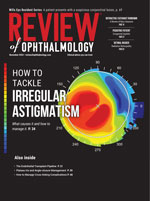Summer is still hale and hearty when we begin production on our September issue. Most of us have already enjoyed or will soon take some precious time off the grid, and on vacation.
As the deadline sails past and my blank editor’s page returns my blank stare, I reflect on the month and wonder, what can I possibly write about this time? If it weren’t for these earthquakes and hurricanes interrupting me, I’d be sitting on the beach by now.
Eventually it dawns—even on me—that the past week has brought us a pairing of events that hasn’t happened in this part of the country in … ever.
While I’m not settled yet on what the ultimate lessons might be, both events have some things to teach us, particularly about our ever-more-insistent connection to the aforementioned grid.
As I sat in a meeting room last week with my coworkers, a few of us detected a slight rumble and noticed each other’s chairs sliding and bouncing nearly imperceptibly. It ended after a few seconds, but it was enough to convince us that, yes, that was probably an earthquake. The old field stone and wood farmhouse building we were in was the perfect foil for any cellular connections, so we were for the most part, off the grid. We went on with our meeting almost without a second thought.
What would our reaction have been had we been on the grid and aware that hordes of office workers were spewing out of high-rises and onto the streets of the East Coast’s major cities? I dare say our reactions would have been quite different.
The second of Mother Nature’s late-summer assaults on the East Coast, Hurricane Irene, was well-anticipated. So well, in fact, that the anticipation itself is now the subject of some debate, in light of the less-than-expected level of intensity. (That’s not to minimize the loss of life or damage that some mid-Atlantic and New England states are still dealing with in the days after the storm.)
I come down squarely on the side of more information. Even at the expense of over-preparation. Even if it takes the form of the cliched eyewitness weather reporter blowing across the TV screen.
I generally trust the intelligence of the average person to take what he or she sees or reads on the grid and judge its appropriate level of credibility and gravity. But I have to feel that even those who manage that successfully do pay some long-term price for the “drinking from the firehose” nature of what the grid has become. If you haven’t managed it yet, September is lovely time of year to get some time off the grid.
 |



